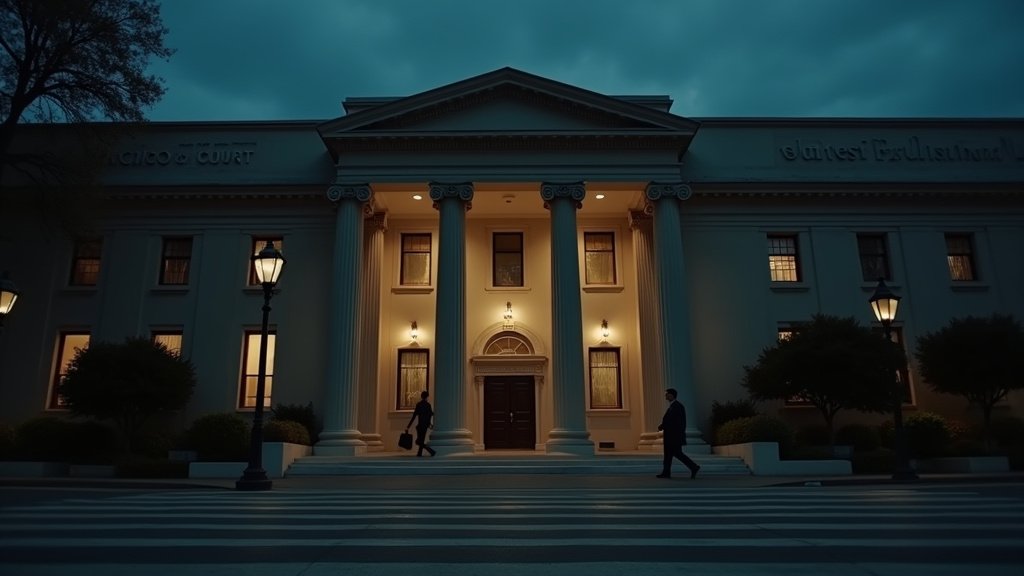PORTLAND, OR – A pivotal decision from the Ninth Circuit Court of Appeals regarding the legality of **National Guard deployment** to Portland, Oregon, is expected imminently, marking a critical juncture in the ongoing legal battle between state and federal authorities. The appeals court is poised to rule “as quickly as possible” on whether federalized National Guard members can be deployed within the city, a matter that has ignited intense debate over presidential authority and **state sovereignty**. As of October 12, 2025, the federalization of Oregon National Guard troops remains in effect, but their deployment within the state is still blocked by judicial order, a status quo preserved by the Ninth Circuit’s recent intervention. This specific **National Guard deployment** case has garnered national attention.
Background: Tensions Rise Over Federal National Guard Deployment
The controversy ignited in late September 2025 when President Donald Trump announced his intention to federalize and deploy 200 Oregon National Guard members to Portland. The stated objective was to protect federal facilities, particularly an Immigration and Customs Enforcement (ICE) facility, which the administration contended was under siege by “domestic terrorists” amidst ongoing protests. Trump asserted that the situation warranted the use of “full force, if necessary,” painting Portland as a “war-ravaged” city in need of federal intervention, highlighting the contentious nature of **National Guard deployment**.
However, this assertion was met with staunch opposition from state and local leaders in Oregon. Governor Tina Kotek and Attorney General Dan Rayfield vehemently refuted the administration’s characterization of the protests, which they described as largely peaceful and numbering only a few dozen individuals on most nights. They argued that the situation did not constitute a rebellion or a threat to national security, nor did it demonstrate an inability for regular law enforcement to execute federal laws, thereby questioning the legal basis for federalizing the state’s National Guard and initiating a **National Guard deployment**.
Legal Challenges and Judicial Roadblocks to National Guard Deployment
In response to the President’s order, the state of Oregon, soon joined by the city of Portland and later the state of California, filed a series of lawsuits challenging the deployment. U.S. District Judge Karin Immergut, a Trump appointee, initially issued a temporary restraining order (TRO) on October 4, 2025, blocking the **National Guard deployment** of Oregon National Guard troops. Judge Immergut found that the President’s determination was “simply untethered to the facts” on the ground and that the deployment could infringe upon **state sovereignty**, stating, “This is a nation of Constitutional law, not martial law.”
Undeterred, the Trump administration signaled its intent to deploy National Guard members from other states, specifically California and Texas, to circumvent Immergut’s order. This prompted the judge to issue a second, broader TRO on October 5, 2025, which explicitly barred any federalized National Guard members, regardless of origin, from being deployed to Oregon. The administration’s attempt to send California National Guard troops to Portland was described by Oregon Attorney General Dan Rayfield as a “direct attempt to circumvent the court’s order,” underscoring the legal complexities surrounding **National Guard deployment**.
Appeals Court Steps In on National Guard Deployment
The federal government appealed Immergut’s orders to the U.S. Court of Appeals for the Ninth Circuit. On October 8, 2025, a three-judge panel issued an administrative stay, a temporary measure designed to preserve the status quo. This ruling allowed the Oregon National Guard to remain federalized under President Trump’s command but critically maintained the block on their deployment within Portland. The panel emphasized that this stay “does not constitute in any way a decision as to the merits” of the case. Oral arguments for the appeal were subsequently heard on October 9, 2025, concerning the **National Guard deployment**.
Arguments and National Implications of National Guard Deployment
The legal dispute centers on fundamental questions of federalism and the limits of **executive power**. The Trump administration has invoked statutes like Title 10, arguing the President has broad discretion to federalize National Guard troops during times of perceived rebellion or when regular forces are insufficient to execute laws. This argument contends that the President’s determination of such circumstances is largely unreviewable by the courts, a key point in the debate over **National Guard deployment**.
Conversely, state plaintiffs and their allies, including a coalition of 23 other states supporting Oregon and California’s lawsuit, argue that such deployments violate the Posse Comitatus Act, which generally prohibits the use of the military for **domestic law enforcement**. They contend that the President’s justifications are factually unfounded and that these deployments represent an overreach of federal power, potentially undermining constitutional rights and creating a dangerous precedent for the use of military force against citizens. Legal experts suggest the case could significantly shape the balance of power between federal and state governments regarding **National Guard deployment**.
Awaiting the Final Verdict on National Guard Deployment
With the Ninth Circuit Court of Appeals having heard arguments and issued a temporary order preserving the current standoff—federalization without deployment—the anticipation for a definitive ruling is palpable. The upcoming decision is expected to clarify the boundaries of presidential authority in deploying federalized National Guard troops domestically and will have significant implications for future responses to **civil unrest** across the United States. The news from Oregon highlights a national trend of legal challenges aimed at curbing executive actions perceived as exceeding constitutional limits. The courts are now tasked with determining whether federal troops can be used for **domestic law enforcement** against the will of state and local leaders, a decision that will resonate far beyond Portland and shape the future of **National Guard deployment**.
Further reading: Related News on Google




